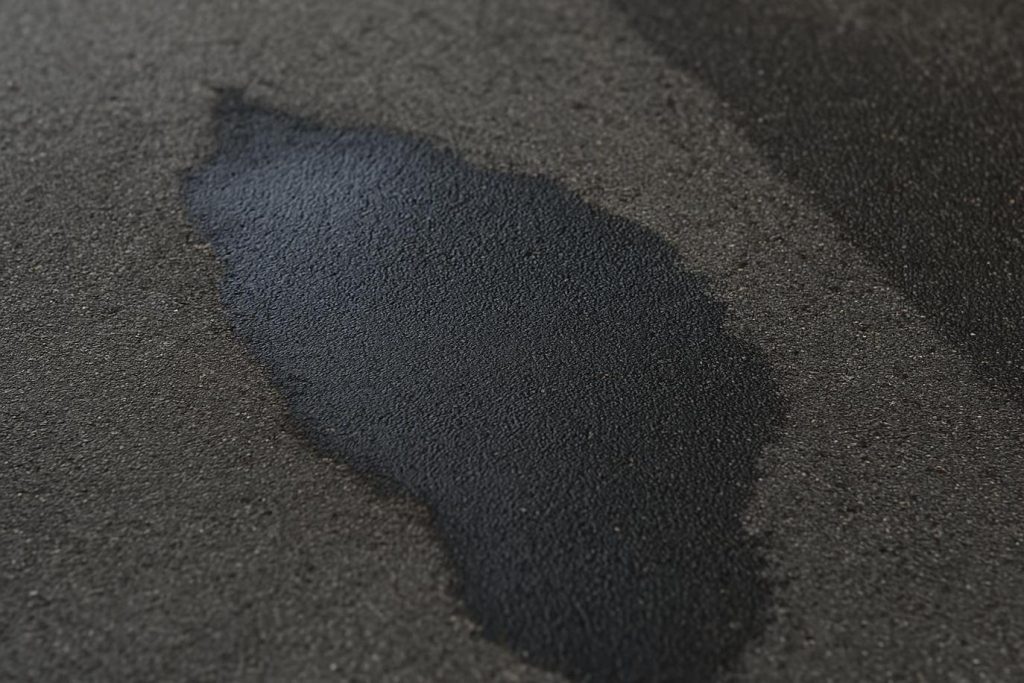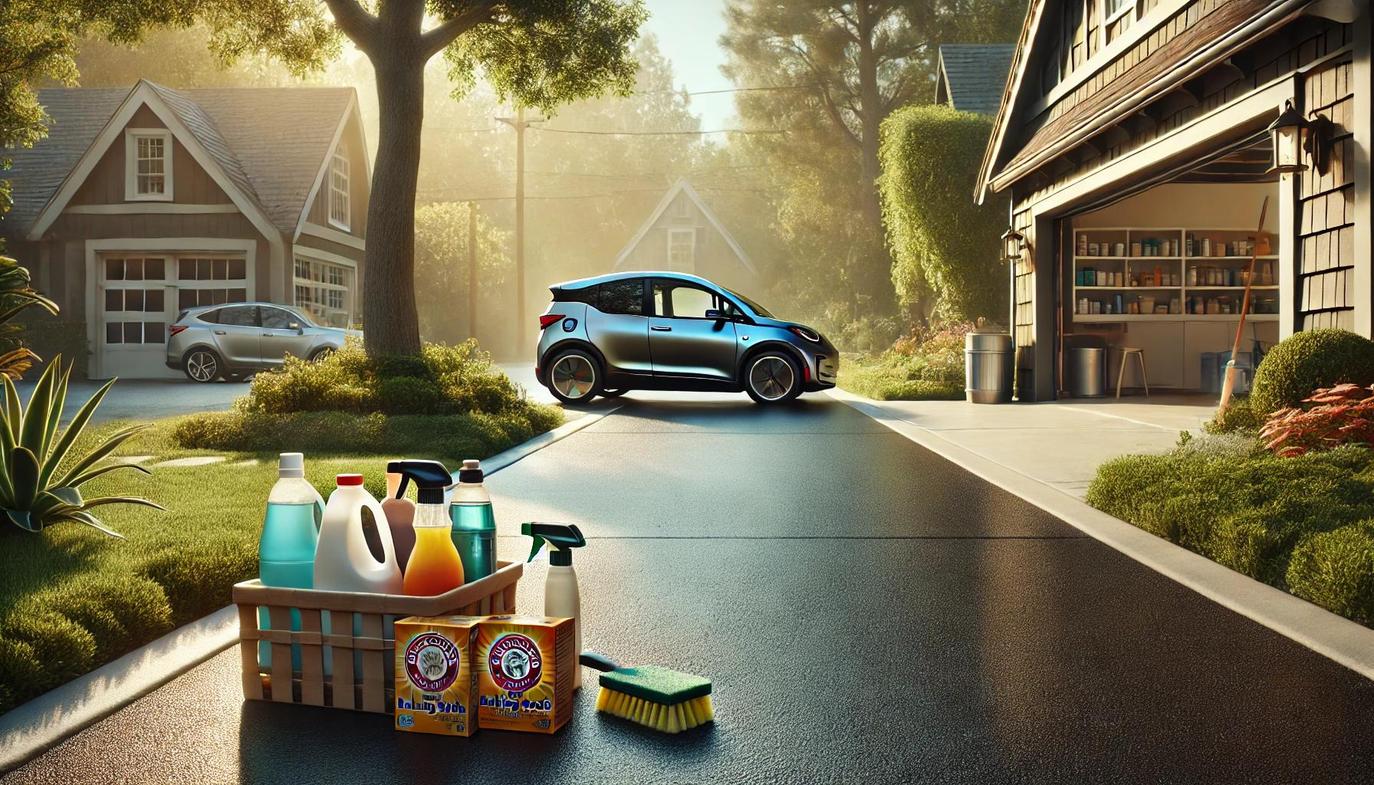Keeping your driveway clean can feel like a constant battle, especially when oil and fuel stains sneak in from everyday vehicle use. These blemishes are more than just an eyesore; if left unchecked, they can diminish the curb appeal and, subsequently, the market value of a property. Thankfully, there are oil stain removal from asphalt solutions using eco-friendly techniques. These methods emphasize sustainability and provide effective cleaning results that stand the test of time.

What Causes Oil and Fuel Stains on Driveways?
To effectively combat driveway stains, it is necessary first to understand their origins:
- Leaking vehicles are the most common cause.
- Small drips overnight or larger spills during maintenance can penetrate asphalt.
- Asphalt is porous, making it vulnerable to permanent staining.
- Continuous vehicle use increases wear and accelerates stain buildup.
Regular upkeep is essential to prevent the accumulation of these stubborn stains. For practical solutions, resources like Better Homes & Gardens offer helpful guidance.
Natural Pantry Products That Remove Oil Stains
Your pantry might be more helpful than you think. Many everyday household items can double as potent cleaning agents for driveway stains, including:
- Baking soda: a natural deodorizer and abrasive that lifts stains.
- Vinegar: breaks down oil through its acidity when paired with baking soda.
- Cornstarch: acts as an absorbent for fresh spills.
These remedies clean effectively without leaving behind toxic residues—making them safe for your home and the environment.
Green Commercial Cleaners That Actually Work
Although DIY solutions are effective, the market also offers eco-conscious alternatives:
- Biodegradable cleaners: made by environmentally responsible brands.
- Enzymatic cleaners: biologically break down oil molecules.
These products are designed to provide safe, efficient cleaning without compromising your commitment to green living.

Step-by-Step DIY Guide for Eco Driveway Cleaning
If you prefer eco-friendly cleaning with what’s already in your kitchen, this simple process works wonders. Try this DIY oil stain removal method using pantry items:
- Step 1: Sprinkle a generous amount of baking soda over the oil-stained area to absorb the surface residue.
- Step 2: Pour white vinegar over the baking soda. Let the fizzing action break down the stain.
- Step 3: Wait 15–20 minutes to let the mixture penetrate and lift the oil.
- Step 4: Scrub thoroughly with a stiff brush to dislodge the grime.
- Step 5: Rinse with warm water to clear away residue.
- Optional: Add a few drops of dish soap to the vinegar to boost cleaning power.
This method is chemical-free, affordable, and safe for both your driveway and the planet.
How to Prevent Oil Stains on Your Driveway
Prevention is key to maintaining a clean driveway. Consider the following strategies:
- Establish a cleaning routine: weekly sweeping and prompt spill cleanup.
- Use driveway sealant: it creates a barrier to prevent oil from seeping in.
- Place drip mats under vehicles: they catch oil before it hits the pavement.
These practices keep your driveway pristine and minimize the need for intensive cleaning.

Why You Should Avoid Chemical Driveway Cleaners
Conventional chemical cleaners may get the job done, but they come with serious drawbacks:
- Environmental harm: pollute soil and water sources.
- Health risks: release fumes and leave behind toxic residues.
- Wildlife threat: contaminate local ecosystems and food chains.
Choosing chemical-free cleaners protects your environment and promotes sustainable living.
What Experts Say About Green Driveway Cleaning
Experts in sustainability advocate for greener home maintenance practices. For example:
A neighbourhood initiative significantly reduced driveway stains using only eco-friendly methods.
Environmental professionals highlight green habits as essential to reducing urban pollution.
Their insights reinforce the idea that clean living starts with conscious choices at home.
Where to Learn More About Eco Cleaning at Home
If you’re looking to dive deeper into eco-conscious cleaning, check out these resources:
- Nonprofit organizations: provide education on reducing household toxins.
- Community guides: offer tips for greener cleaning routines.
- Health and wellness websites: share benefits of chemical-free living.
Cleaner homes contribute to cleaner communities and healthier lives.

Quick Tips to Keep Your Driveway Clean and Spotless
Here’s how to respond quickly and efficiently to oil spills:
- Act immediately: fresh stains are easier to manage than set-in ones.
- Use absorbents: sand, sawdust, or kitty litter work well for soaking up spills.
- Keep materials handy: having these on hand saves time and hassle.
A fast response helps preserve your driveway’s condition and reduces long-term cleanup efforts.
A Clean Driveway That Protects the Planet
Eco-friendly driveway cleaning isn’t just about aesthetics—it’s about making choices that benefit both your home and the environment. With natural cleaning agents, biodegradable commercial options, and a commitment to routine upkeep, maintaining a pristine driveway becomes a sustainable habit, not a chore.
By replacing chemical-heavy cleaners with greener alternatives and adopting preventive measures, homeowners can reduce their environmental impact while preserving the integrity and appeal of their property. A cleaner driveway truly starts with a cleaner conscience.
Frequently Asked Questions
What removes oil stains from asphalt naturally?
Baking soda, vinegar, cornstarch, and even kitty litter are effective natural options for removing oil from asphalt driveways. They lift and absorb stains without leaving harmful residues behind.
Are commercial eco-friendly oil cleaners effective?
Yes, biodegradable and enzymatic cleaners can break down oil molecules efficiently without damaging your driveway or harming the environment.
How can I prevent future oil stains?
Use driveway sealants to protect the asphalt, place drip mats under vehicles, and clean up spills immediately using absorbent materials like sand or sawdust.
Is pressure washing safe for driveways?
While pressure washing can help, it’s best used in moderation. Eco-friendly cleaning methods are often sufficient and safer for preserving asphalt integrity.




